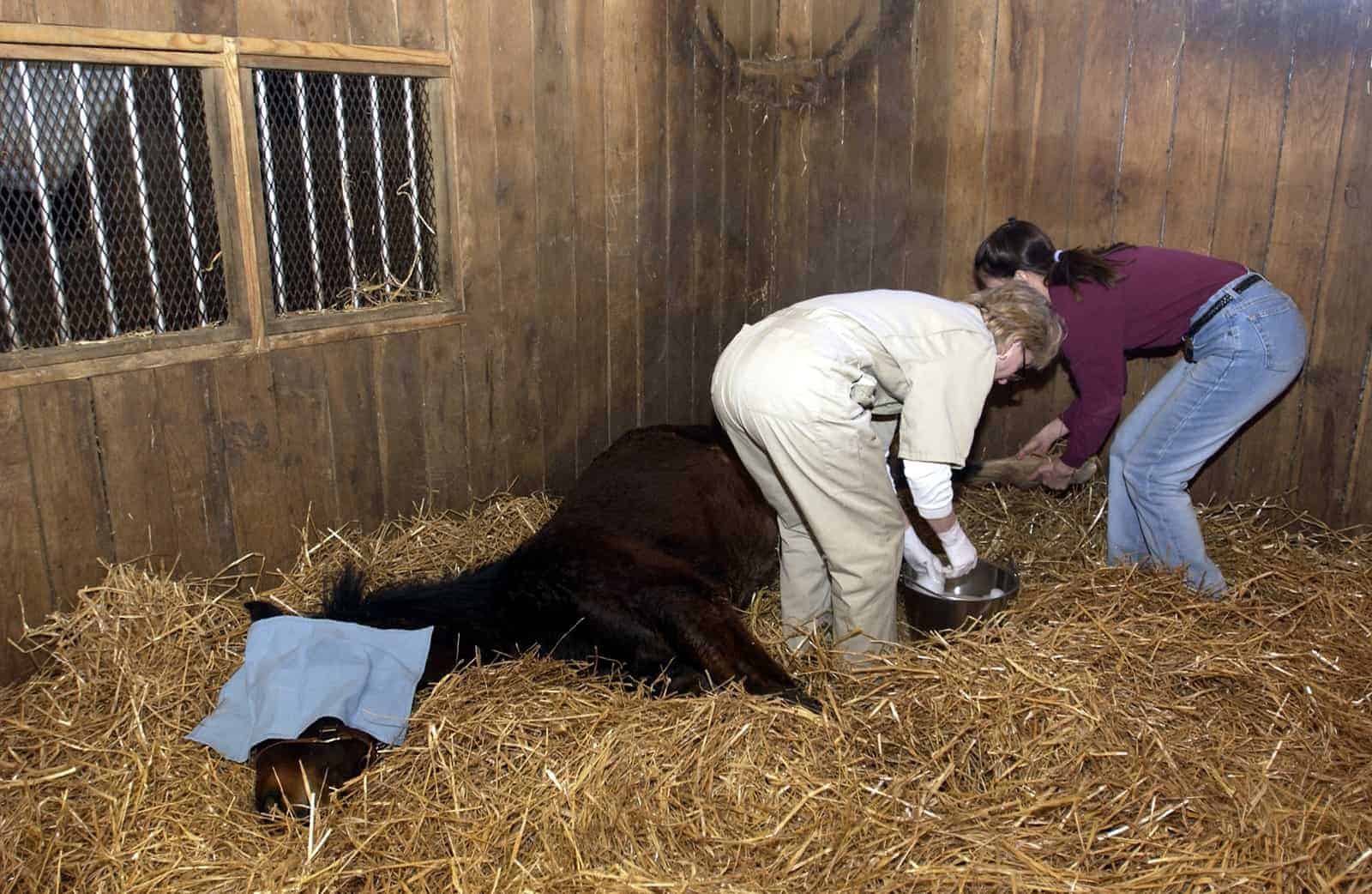Equine Castration Complications

Castration is surgical removal of the testicles to prevent stallionlike behavior and development, as well as pregnancy in herd settings. Stallions can be gelded as young as nursing foals up until their 20s, though veterinarians typically castrate colts before 2 years of age. Many vets prefer to perform castrations during the cooler months when there are fewer flies.
Colts should be halter-trained and accustomed to handling so they can be easily managed during and after surgery. The veterinarian will often administer a tetanus immunization before or at the time of surgery. Usually, castration patients need at least two weeks of postoperative care, so schedule the surgery for a time when you can monitor the horse closely.
The Procedure
In our practice we usually perform recumbent (down) castration under short-acting general anesthesia. The colt lies on his left side with his right hind leg tied up so we can access the scrotum. We perform the procedure in the field or at the clinic, and usually outside. Some vets prefer to do the procedure with the horse standing and sedated
Create a free account with TheHorse.com to view this content.
TheHorse.com is home to thousands of free articles about horse health care. In order to access some of our exclusive free content, you must be signed into TheHorse.com.
Start your free account today!
Already have an account?
and continue reading.
Written by:
Doug Thal, DVM, Dipl. ABVP
Related Articles
Stay on top of the most recent Horse Health news with















